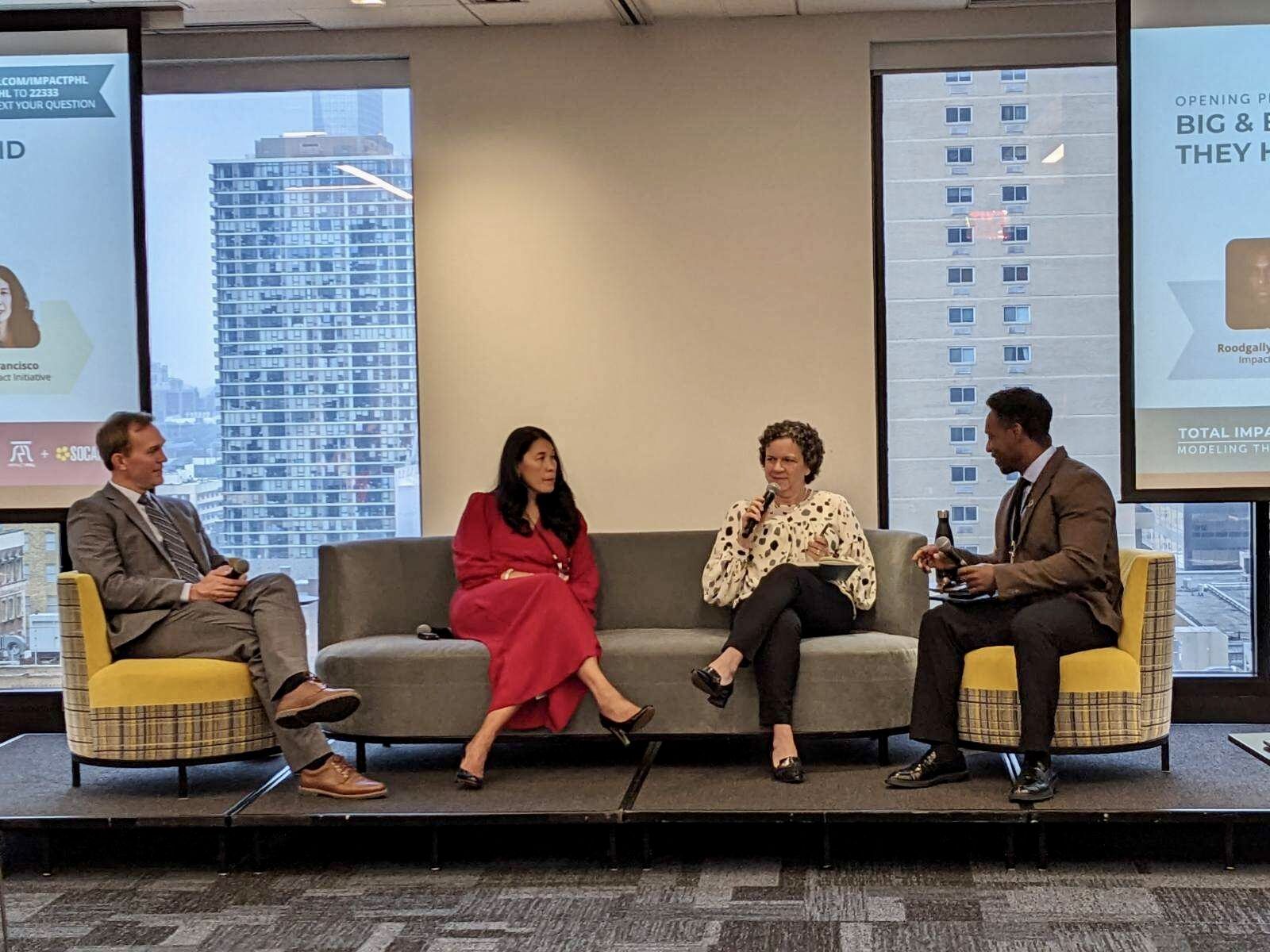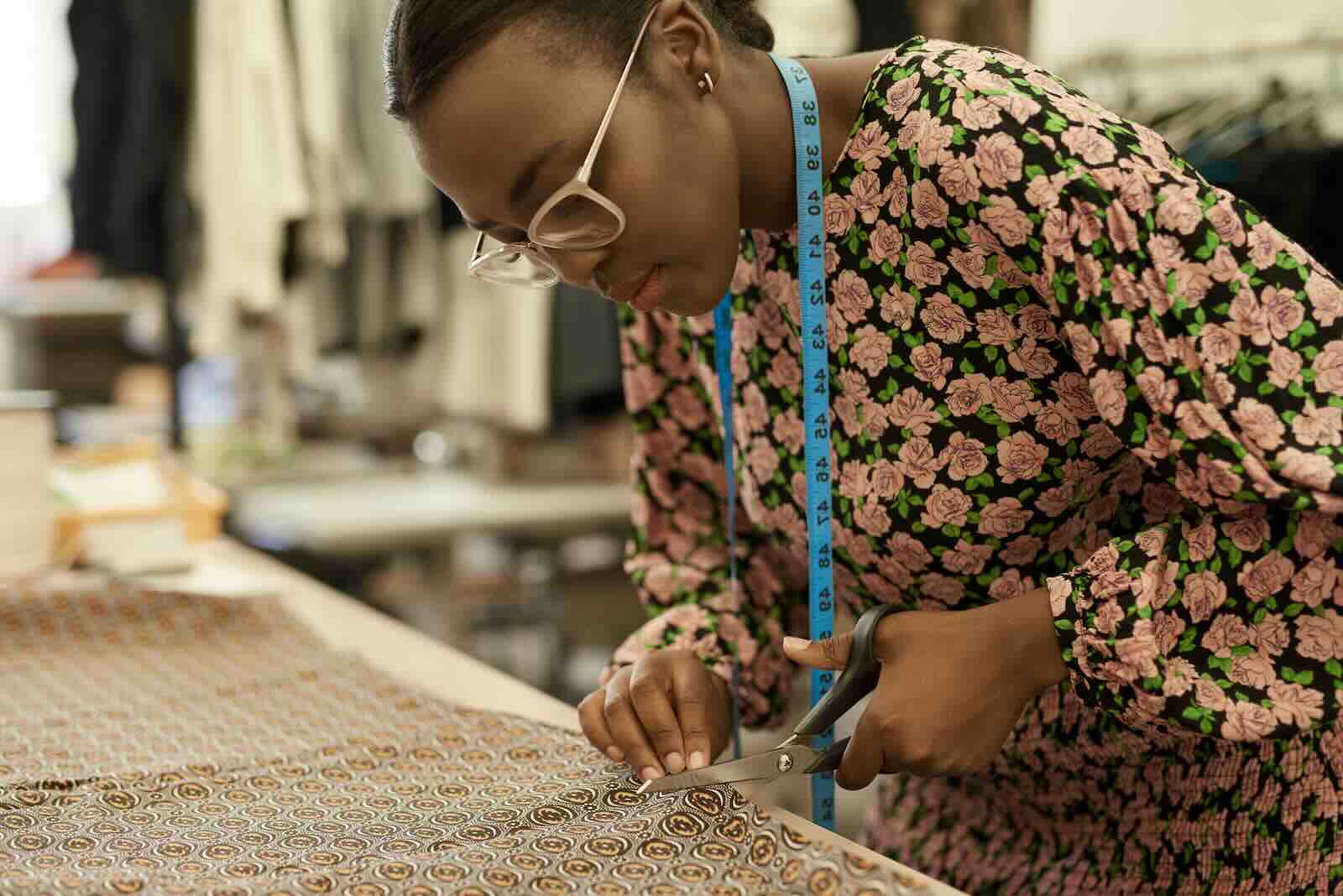Greetings, Agents of Impact!
Signals: Ahead of the Curve
Rolling up impact across sectors and strategies. Impact investors have beefed up the case that social and environmental impact can generate competitive financial returns. What hasn’t been as well documented is, uh, impact. The increasingly sophisticated practice of impact measurement and management is changing that. At its investor forum in Amsterdam today, the Global Impact Investing Network is out with two reports that demonstrate how to aggregate and compare impact across sets of investments. One example rolled up 56 clean energy investments made through various instruments and primarily with private capital. For each $100,000 invested, more than 2,000 people gained access to energy, more than 3,000 metric tons of greenhouse gas emissions were averted and at least 19 new jobs were created over one year. It has been difficult, until now, to aggregate impact results across investments. “Better transparency and comparability of impact performance data makes it easier for investors to screen investments and manage them in a way that helps improve impact outcomes,” says the GIIN’s Sapna Shah. The GIIN’s Rachel Bass will dive deeper in an afternoon session, “Driving shared data.”
- Greater sophistication. The methodology draws on other recent advances in impact measurement and management, namely the GIIN’s enhanced IRIS+ metrics catalogue (see, “IRIS+ tool provides guidance to reset expectations for ‘impact performance’”) and Impact Management Project’s five dimensions of impact (what, who, how much, contribution, and risk).
- Impact principles. The advance in impact performance analytics comes as more than 75 investment firms have signed onto the IFC’s Impact Principles, which lay out for investors how to integrate impact into investment processes (see, “Global investment firms adopt IFC principles seeking a market standard for impact investing”).
- Share this post.
The supply of catalytic capital is bigger than expected. Demand is even bigger. The MacArthur Foundation turned up a bumper crop of proposals with its call for funds that demonstrate the value of “catalytic capital” (see, “Indispensable element in many impact investments: ‘catalytic capital’”). Such financing, which can accept higher risks or lower returns, is the scarcest resource in the impact investing market. MacArthur is planning to make about $120 million in additional investments, to be at least matched by other investors. The 112 projects that made the first cut in MacArthur’s selection process represent about $2.1 billion in such matching funds, MacArthur’s Debra Schwartz told ImpactAlpha, meaning “they were coming to the table with at least that much catalytic capital.” The matching capital comes not only from foundations, but family offices, corporations, banks, development finance institutions and even non-governmental organizations investing from their balance sheets. Some may not see themselves as concessional; market-rate investors that see risk differently than other investors can use their specialized knowledge to gain an edge. MacArthur expects to make four to five investments of $10 million to $30 million each. “The need was clear from the proposal pool that it wasn’t enough,” Schwartz says. “We are not going to come close to filling the gap.”
- Cross-sector. The proposals ranged across issue areas and regions. Tagged to the Sustainable Development Goals, the largest group of proposals targeted poverty-reduction (SDG No. 1) and decent work and economic growth (No. 8), with multiple proposals focused on gender equality (No. 5), affordable and clean energy (No. 7) and sustainable food and agriculture (No. 2).
- Smart subsidies. Some managers are seeking catalytic capital to demonstrate performance and attract commercial investments. Others are using catalytic capital to de-risk conventional investments with blended financing. For yet others, “their impact focus may be that they always need some level of subsidy,” Schwartz says.
- New players. “One of the things that is going to be really critical is to see catalytic capital flow into the market,” Omidyar Network’s Robynn Steffen said to kick off ImpactAlpha’s “Beyond Tradeoffs” podcast series earlier this year. That may be happening: The U.K.’s CDC Group announced in ImpactAlpha this week that it has $1.5 billion to deploy, starting next year, for “catalyst strategies” that take on additional risk to shape nascent markets and build more inclusive economies (see, “How CDC Group is innovating with catalytic capital”). Schwartz will talk catalytic capital with CDC’s Yasemin Saltuk Lamy and FSG’s Harvey Koh in a lunch discussion at the GIIN’s investor forum today.
- Share this post.
Dealflow: Follow the Money
CDC invests $30 million in Bangladesh’s BRAC Bank to promote financial inclusion. The U.K.’s development finance institution is aiming to invest $1.7 billion in Asia in support of the U.N. Sustainable Development Goals by 2021. Its latest effort toward that goal: a $30 million loan to BRAC Bank, Bangladesh’s largest commercial bank. BRAC Bank currently serves 1.2 million commercial, retail and small business customers across Bangladesh. The loan will increase BRAC’s business lending capacity to “accelerate their growth, advance employment and positively contribute to Bangladesh’s economy,” according to CDC. It will also help the bank develop its personal finance and women-focused product lines. The investment tracks with the CDC’s decision to establish a permanent presence in Bangladesh, where it has committed $205 million over the past decade. More.
Oikocredit extends expansion loan to Uganda’s farmer-owned Kayonza Tea Factory. Kayonza Tea Factory in southwestern Uganda is an economic pillar in the region, supporting nearly 7,500 nearby smallholder tea farmers that are also owners. The farmers have been so successful that the facility has been operating at full capacity. Dutch impact investor Oikocredit is extending a $3.2 million long-term loan to Kayonza to build a second factory in nearby Mpungu. The loan will enable Kayonza to double its processing capacity to 38,000 metric tons (42,000 tons) of tea per year, hire 220 local employees, and support an additional 3,000 farmers. “Kayonza’s new factory has the potential to be a huge catalyst for development in the area,” Oikocredit’s Geoffrey Musyoki said. Solidaridad, a sustainable supply chain network, provided capacity development and investment readiness support to Kayonza. The tea company is the first in Solidaridad’s pipeline of nearly 60 ventures it is helping secure investor backing. Check it out.
MaxAB raises $6.2 million to help Egypt’s informal retailers with logistics. The Cairo-based company, which streamlines the inventory needs of local mom and pop shops, is the latest example of funding rounds backing tech startups serving informal businesses.
Impact Engine backs KickUp to link teachers with skills training. The women-run impact investment firm invested an undisclosed sum in KickUp’s platform, which helps teachers and school districts identify quality professional training programs and tracks the impact.
Agents of Impact: Follow the Talent
Katherine Milligan, formerly of Schwab Foundation for Social Entrepreneurship, joins Bamboo Capital Partners as head of diversity and gender lens investing… Upstart Co-Lab is looking for a senior associate in New York… Social Capital Partners seeks a senior associate in Toronto… Village Capital was named best fintech accelerator at the Finovate Awards… Check out the replay of last week’s Transform Finance webinar on recent trends in impact investing, “A Conversation with ImpactAlpha,” hosted by Andrea Armeni and featuring Dennis Price, Imogen Rose-Smith and David Bank, with guest appearances by Jed Emerson and Bruce Campbell.
Thank you for reading.
– Oct. 2, 2019











